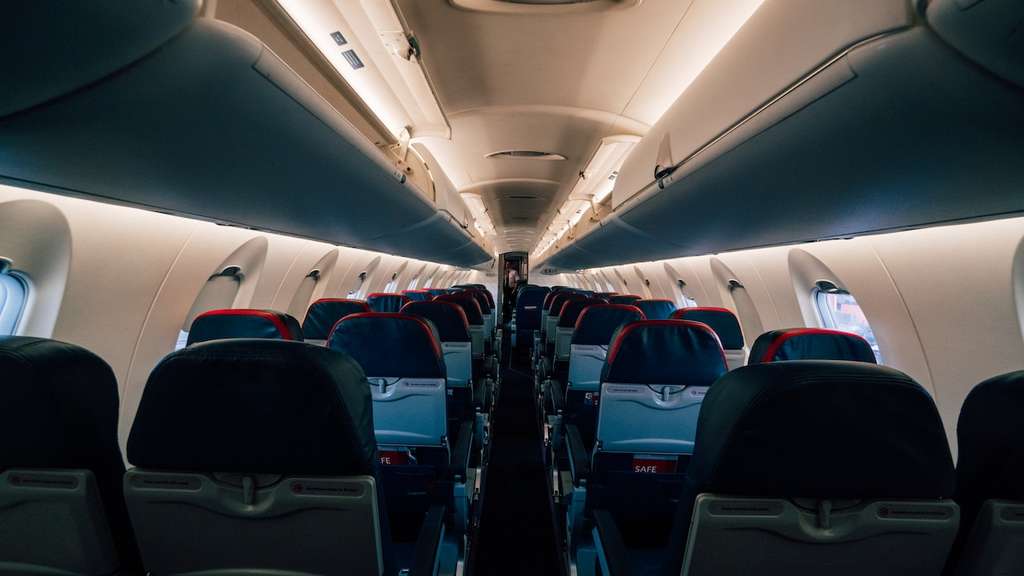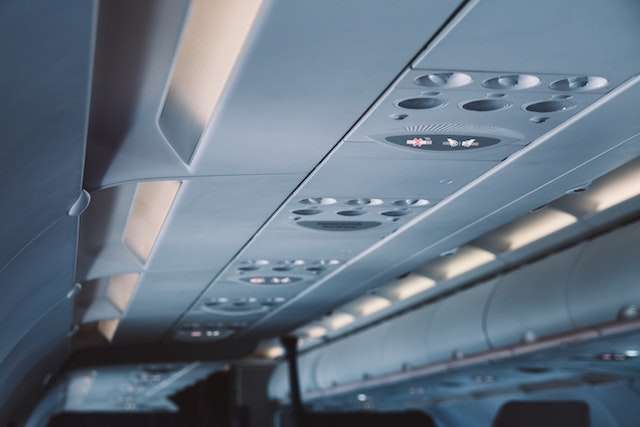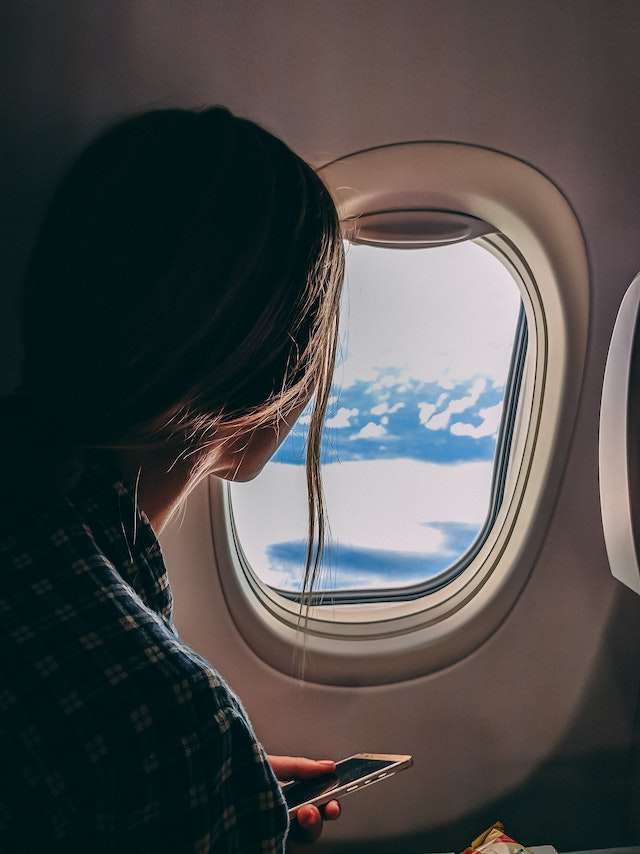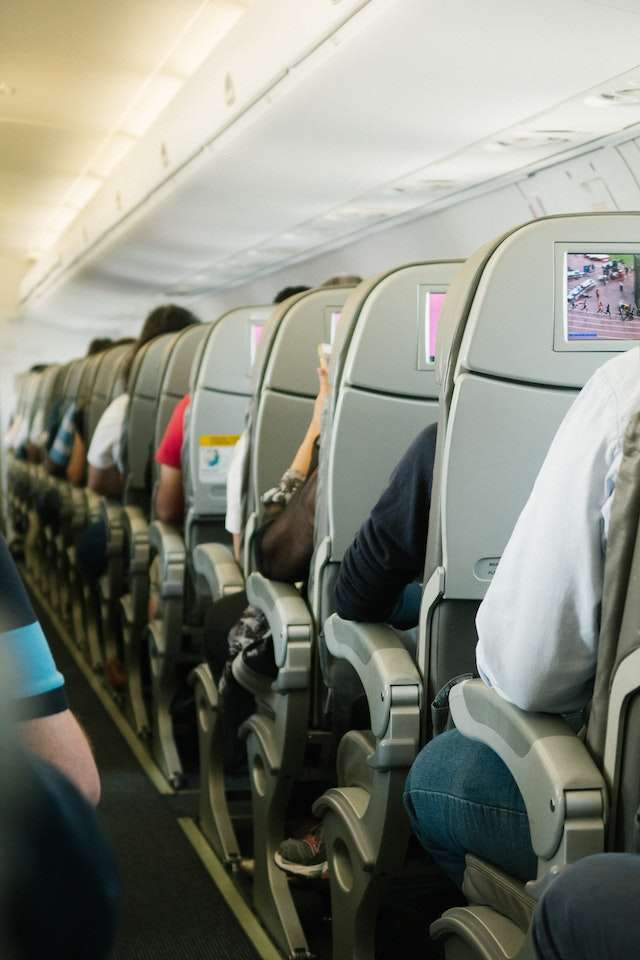Very friendly and super helpful with any questions I had. Very clean and calm atmosphere, all the staff were kind.
Read More
How to Avoid Getting Sick on a Plane
Posted: Aug 17th, 2022 at 12:00AM

Health and travel are inextricably linked. Flying is one of the most efficient ways to travel between two places. However, it can come with its own unique challenges. For instance, planes are a breeding ground for bacteria. You share the restroom, chairs, and tray tables (which one study found are dirtier than the bathrooms!) with countless other people — not to mention breathing the same air. Some of the germiest surfaces you'll come into contact with are on airplanes.
While you can't completely control your experience in flight, the good news is that there are still things you can do to avoid getting sick on a plane. Keep scrolling for eight tips!
Don't forget to book an appointment with a travel medicine specialist before your next big adventure.
8 Ways to Avoid Getting Sick on a Plane
So, how can you stay healthy while traveling to your next destination via airline?
1. Keep Your Things in an Overhead Bins
Keeping your belongings in the overhead bin rather than by your feet can benefit your health. Storing your backpack on the ground exposes you to further contamination since it's an area that's been touched by passengers' shoes, making it a hotbed of germs.
Aim to stow everything overhead and then remove whatever you want once you're up in the air.
2. Choose a Window Seat
Picking a window seat doesn't only provide you with an amazing view of the clouds and earth below. It also minimizes your contact with other travelers who might be sick. Research tells us that this is the least germy seat on the plane, followed by the middle seat and lastly, the aisle seat.
This is because sitting in the aisle seat means you come into contact with more passengers using the bathroom or flight attendants walking by, putting you at a higher risk of getting contaminated. In addition, people maintain their balance by holding on to the aisle seats, increasing the spread of germs from hand contact.
 3. Use Your Own Pillow and Blanket
3. Use Your Own Pillow and Blanket
Your airline provides pillows and blankets that you can use during long flights. However, they can be contaminated. If your blanket comes in a sealed plastic bag, you're probably okay. However, if it doesn't, there's a good chance that someone used it before you.
4. Be Even More Mindful of Hydrating
Drinking enough water is already important, as is. However, because of the filtration system in planes, the air is dryer than normal. Also, humidity in airplanes is lower, which means that there's less moisture in the air. Low humidity causes the mucous membranes, nasal passages, and respiratory tract to dry out, allowing bacteria and viruses to access your respiratory system more easily. Plus, drinking plenty of water helps combat common symptoms of dehydration like headaches, dizziness, muscle cramps, and fatigue.
Try to avoid drinking coffee or cocktails since they can dehydrate you. In addition, airplane tap water is generally deemed unsafe, therefore stick with bottled water instead.
5. Travel With Electrolytes
Adding electrolytes into your water helps you when you are dehydrated and keeps the fluids in your body balanced. They also help encourage healthy pH levels in the blood, along with regulating your blood pressure. While you might get the electrolytes you need in everyday life, it's beneficial to give yourself a little boost because flying can be so dehydrating.
6. Disinfect Surfaces With Sanitizing Wipes
Millions of people touch the surfaces on the plane, which likely aren't sanitized. Carry a packet of sanitizing wipes and use them to clean the armrest, tray table, headrest, seatbelt, and anything else you might come into contact with after boarding the plane. Some airlines also provide passengers with sanitizing wipes as they board since the onset of COVID-19. If they don’t automatically pass them out, just ask the flight attendant.
 7. Keep Your Hands Clean
7. Keep Your Hands Clean
Keeping your hands clean is a precautionary measure you can take to avoid getting sick on the plane. Most aircraft surfaces, such as the tray table and armrest, carry endless germs. Wash your hands throughout your flight with soap and water to safeguard yourself from germ-causing diseases. According to the CDC, washing your hands prevents about 30% of diarrhea-related diseases and 20% of respiratory infections.
In instances where water is not available, hand sanitizer will come in handy. The CDC recommends using a hand sanitizer with 60% alcohol content as it effectively kills germs.
Hand hygiene is essential because you constantly touch your face, even unknowingly, making it easy for germs to get into your body.
8. Protect Yourself From Airborne Germs
Airborne pathogens in the airplane can be spread through sneezing, coughing, and mere breathing, leaving you susceptible to a variety of illnesses. A face mask gives you an additional layer of defense against airborne pathogens. In addition, they prevent you from touching your nose and mouth with your hands.
 Using your air vent is also a good idea since it helps to keep the air circulating. HEPA air filters in planes capture about 99.97% of particulate material, making the air cleaner than you might expect. Just be sure to wipe down the vent handle/dial first. It's one of the dirtiest surfaces on the plane.
Using your air vent is also a good idea since it helps to keep the air circulating. HEPA air filters in planes capture about 99.97% of particulate material, making the air cleaner than you might expect. Just be sure to wipe down the vent handle/dial first. It's one of the dirtiest surfaces on the plane.
None of this is meant to put a damper on your next adventure! It simply means that taking a little extra caution can go a long way. To avoid illness while traveling, get your travel vaccines in advance, and prepare to fight germs on your plane by following the tips we've outlined in this blog. Safe travels!

I came to E7 health for a physical exam for employment. Staff was very professional, And I was in and out in thirty minutes
Read More
Staff was extremely friendly, I was able to walk in without an appointment.
Read More
Very friendly, informative, and well versed. Felt well taken care of by the doctor and all the staff. Fast, friendly, considerate, all staff met.
Read More
I was here for an employment physical. They are amazing! I was in and out in less than 10 mins.
Read More
J was super helpful. Very quick and easy.
Read More
Rachel was amazing and I was in and out so quick ! Ready to start my new job ! Thanks 🥰
Read More
J was awesome at talking me through my first time getting blood taken. The doctor that also did my physical was quick and very thorough when letting me know the next steps for getting the test results back :)
Read More

















 3. Use Your Own Pillow and Blanket
3. Use Your Own Pillow and Blanket 7. Keep Your Hands Clean
7. Keep Your Hands Clean